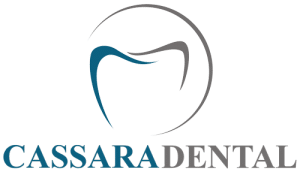Teeth Cleaning in Mountain View, CA
For most people, having their teeth cleaned is a painless and simple process. Some people, however, dread teeth cleanings. With the strange noises, prodding, and smells, it’s not hard to understand why they may get a little anxious. Learning a little about a teeth cleaning procedure can help ease your anxiety about the procedure and make it a little easier to go through.
It’s essential you have regular professional teeth cleanings even if you are brushing and flossing your teeth every day faithfully And, if you’re not that meticulous with your dental hygiene, you need a teeth cleaning even more.
What Is a Teeth Cleaning Procedure?
A tooth cleaning procedure is usually performed by our dental hygienist, although our dentist, Dr. Joseph M. Cassara DDS will sometimes perform the procedure too. The procedure takes around 30 to 60 minutes, and is essential for keeping your teeth and gums clean. Usually, a teeth cleaning procedure will involve the following:
- A physical exam. Before our dental hygienist performs the cleaning procedure, they’ll begin with a physical examination of your whole mouth. They’ll use a small mirror for checking around your gums and teeth to look for signs of inflamed gums (gingivitis) or other possible concerns. If they identify any major issues, they’ll call in Dr. Cassara to let them know if it’s safe to proceed.
- Scaling. The hygienist will use a small hooked tool to remove any tartar and plaque from your teeth’s surface, in between your teeth and near your gum line. Depending on the amount of buildup they see, they’ll use either an ultrasonic or manual scaler. The ultrasonic scaler uses water and gentle vibration for eliminating large deposits while the manual scaler feels like they’re scraping your teeth.
- Gritty toothpaste. Once the hygienist gets your teeth totally tartar-free, they’ll brush them using a high-powered electric brush that makes a type of grinding noise. Even though it sounds scary, it’s actually a good way of removing leftover tartar from the scaler and deep clean your teeth. Professional cleanings use a gritty consistency toothpaste to scrub your teeth gently. You can choose from various flavors. When a professional performs this cleaning, this polishing is safe to have performed twice a year. However, you don’t want to be as harsh at home when cleaning your teeth since you could wear down your enamel.
- Flossing. Even if you floss at home regularly, you should still have a professional flossing session. The hygienist will get deep in between your teeth and identify any possible trouble areas where your gums might bleed. If you floss regularly at home, this may seem pointless, but having a professional flossing session performed will help remove any leftover toothpaste for plaque from the earlier cleaning process.
- Rinsing. Next, the hygienist will have you rinse your mouth out to eliminate any debris. They’ll typically provide you with a rinse containing fluoride.
- Fluoride. During the teeth cleaning process, we may provide you with a fluoride treatment as well. You can choose which flavor of fluoride gel you want. The hygienist will place the gel inside a mouthpiece that you’ll wear for around a minute.
What to Expect From a Teeth Cleaning Appointment?
Most individuals don’t feel any real noticeable pain or discomfort while having their teeth cleaned. Some people even say they enjoy the process, particularly the clean-feeling results after it’s finished.
If it’s been a while since you’ve had a cleaning, however, it might take several moments before you get used to the process of having your teeth cleaned. If you do experience any type of discomfort, the hygienist may provide you with a type of anesthetic like topical numbing gel.
If bacterial buildup is causing gum irritation, they might bleed or become sore slightly during your cleaning. There are some home measures you might be able to take to prevent this from occurring in the future such as:
- More thorough brushing
- Special mouthrinses
- Improved floss technique
It may also indicate you require in-office cleanings more frequently. This type of routine maintenance can help you avoid having to go through more involved dental procedures later on and will provide you with the best chance of keeping your teeth for a lifetime.
Will X-Rays Be Involved?
X-Rays are usually the only way of identifying whether or not you have cavities. Also, x-rays allow Dr. Cassara to screen for issues in the bone that surrounds your teeth, including any bone loss linked with infections around the roots of your teeth, periodontal disease and other issues that occur in your jawbones. X-rays today are extremely safe.
Digital technology today has allowed us to substantially reduce how much radiation is required for obtaining a standard dental X-ray.
What Diagnostic or Preventative Services WIll Be Involved?
During a teeth cleaning, you’ll also receive,, be informed or, or scheduled for preventive and diagnostic services as well as any required educational information.
Some preventive services might include:
- Stain removal
- Removal of tartar and plaque
- Polishing teeth, including crowns and fillings
- Fluoride application
- Adjustment and cleaning of partial dentures and dentures
- Sealants (for kids)
Diagnostic services might include:
- Oral cancer exam and screening
- Updating and reviewing medical history, which includes information about pregnancy, heart problems, medications and diabetes that could impact your oral health
- Checking chewing, biting and swallowing patterns
- Gum tissue evaluation
- Examination or X-rays of teeth for detecting decay
- Referral to specialists for specialized treatment
Educational services might include:
- Nutritional counseling
- Instructions for tooth brushing and flossing
- Self-care effectiveness evaluation
- Recommendations for treatment in the future (follow-up hygiene treatment, restorative options, periodontal (gum) issues)
- Tobacco-cessation counseling
You should never wait until you start experiencing pain. Waiting until you’re experiencing discomfort typically means you waited too long. A lot of dental issues need to be repaired well before you start experiencing any symptoms. With regular teeth checkups, we can intercept any potential issues before they begin causing you any pain. Not to mention, catching dental issues early will lead to less expensive and less extensive treatment.
Contact Dr. Cassara’s office in Mountain View today to schedule your teeth cleaning appointment by calling 650-969-2866.


